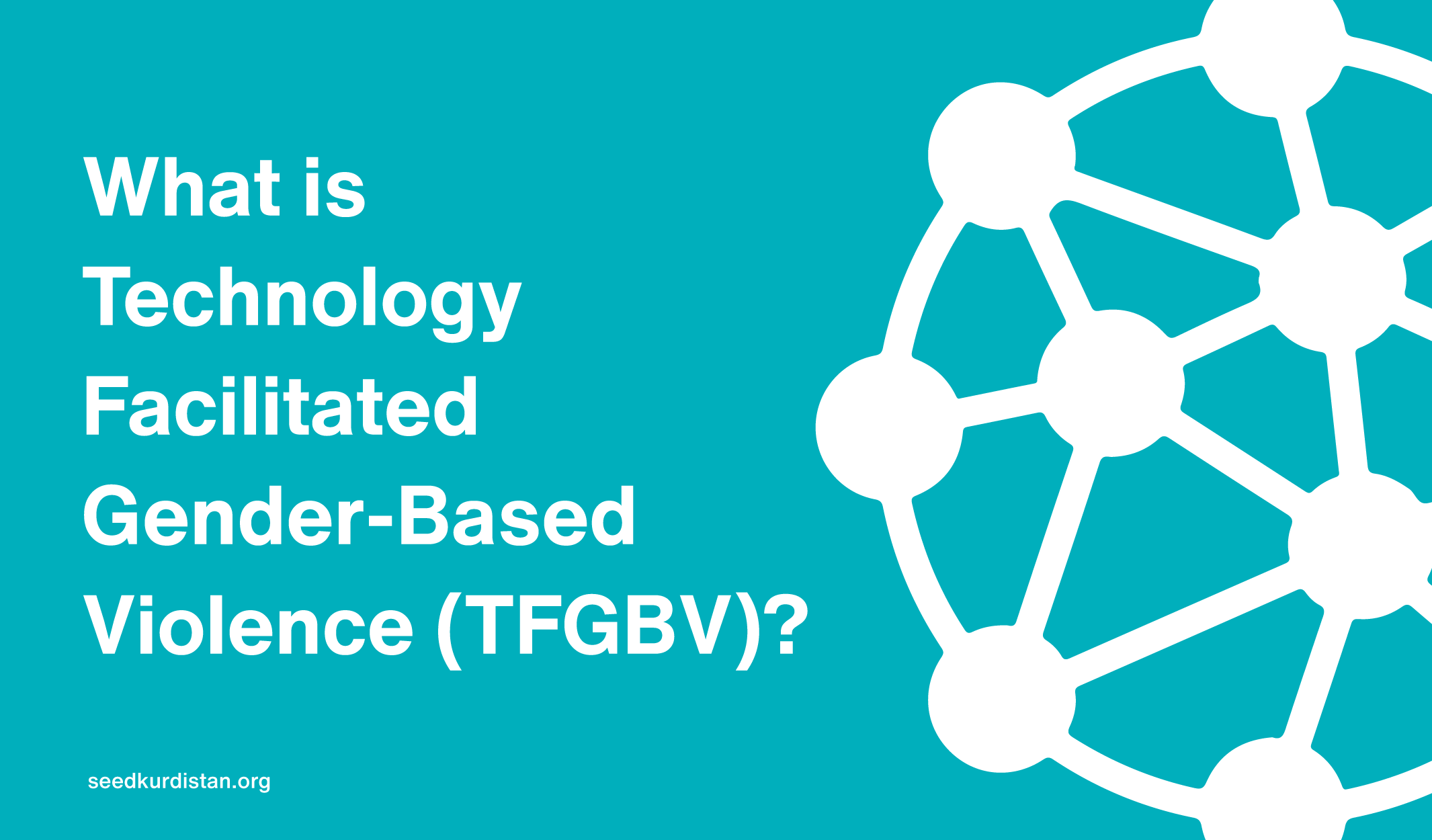
How to Recognize & Respond to Technology Facilitated Gender-Based Violence (TFGBV)
SEED Delivers First Ever TFGBV-focused Training in Iraq for National NGOs
“TFGBV is one of the most important issues we deal with, it’s common and prevalent in our society – especially in the Middle East – due to the misuse of technology, and lack of understanding of rights and duties,” Akram, a recent training graduate described.
Akram joined 50 other representatives from national NGOs operating in Ninewa, to participate in SEED’s latest GBV and Protection Training program, generously funded by the US State Department Bureau of Population, Refugees, and Migration (PRM). These first graduates to complete SEED’s newest training module on Technology Facilitated Gender-based Violence (TFGBV) built their skills and knowledge on how to respond.
For many, TFGBV was new terminology but not a new phenomena. In fact many identified TFGBV as something that is and was endemic in their communities, but was largely occurring undetected or unreported as a form of gender-based violence (GBV).
The dangerous consequences of rising internet and social media penetration – almost half of Iraq and Kurdistan were online at the outset of 20221 alongside alarmingly low digital literacy, especially in women and girls – were made much clearer during the course of this module.
“Lately we hear a lot about people being blackmailed online and through social media platforms, however they don’t realize this is considered TFGBV. In my work experience, I have seen a lot of people who’ve been subjected to blackmailing, both men and women, but they don’t know how to protect themselves, or where to go for reporting and filing a complaint,” explained Sally, a graduate from the latest program.
Iraq is experiencing a GBV crisis, exacerbated by the COVID-19 pandemic and economic uncertainty. What makes women and girls in Iraq and Kurdistan even more vulnerable, is the lack of protections, the prevalence of patriarchal and conservative norms which give rise to the risk of “honor” based violence, and the lack of understanding of how to use social media safely. As a result, women and girls largely suffer in silence, or risk their lives if they do choose to speak.
“Abuse through technology is very common these days…Back in the 90s, sexual abuse was mostly happening outside, nowadays the conditions are vastly different as we are even at risk in our bedrooms. Sometimes the abuse is not physical but economic – asking for money in exchange for not sharing images or videos,” described another member of the graduating class.
SEED’s TFGBV training module focused on five key topics:
- Legal measures, protections, and remedies
- Measures to support and empower survivors
- Capacity-building of NGOs and actors in the criminal justice system
- Community engagement and education
- Advocacy and collective action, such as partnerships and collaboration across sectors
Graduates completed this module with greater understanding of how TFGBV manifests and by the end of the program, many had already started to conceive of how they would approach the issue of TFGBV back home.
“It is preferable to address TFGBV by conducting training courses for people such as community leaders or future trainers, to help them obtain knowledge…so that we can do awareness raising campaigns for beneficiaries and non-beneficiaries. It’d also be preferable to do the awareness campaigns online in order to reach wider groups of people who will be benefiting by knowing how blackmailing/extortion occurs, and what is needed to address this topic or phenomenon that has become prevalent in our society recently,” Akram described. Participants like Akram also took what they had learned and applied it to themselves, to help keep their family and friends safe as well. “I’ll be making sure the apps [I use] stay safe from hacking.”
Rasha, another graduate from the latest training cohorts, agreed that awareness raising is an important first step to tackling this issue: “We can spread the word through awareness raising sessions within the community such as at schools, online sessions, through the mukhtars and community leaders, and the community committees,” she said.
Akram added that a key driver to prevention was awareness of the law, “one of the most important things I learnt about TFGBV that I didn’t know before was that there are strict laws to punish perpetrators…such as the Iraqi Penal Code No. 111 of 1969, as well as the Law of 2008 in the KRI,” he added.
What SEED learned during the delivery of training this past year will be incorporated into the second year of training, ensuring that participants develop the skills and knowledge needed to support effective services for those in need.
1 https://datareportal.com/reports/digital-2022-iraq
